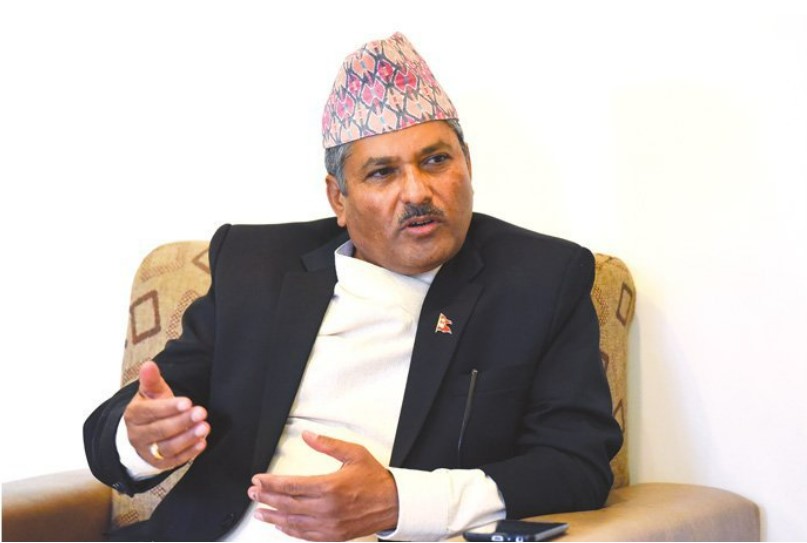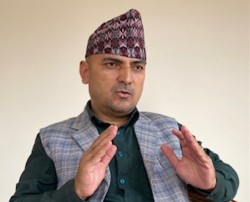Money & Finance

The Nepal Rastra Bank Governor, Mahaprasad Adhikari, has proposed a merger of the country's three government commercial banks.
The head of the central bank said the three banks with state investments should pursue a merger after mutual consultation.
"Rastra Bank has not made a mandatory provision for mergers, but banks are going for mergers by understanding the business needs,” Governor Adhikari said, while addressing the 58th-anniversary programme of Rastriya Banijya Bank, on Tuesday.
“Aren’t state-controlled banks slow to realise the need of a merger? It’s time that they took a long hard look at that.”
The governor has indicated that state-controlled banks should explore this option seriously in light of current market demands.
"Following mergers of commercial banks in the private sector, the government banks are compelled to feel smaller even though it did not want to be smaller,” he said. "So it’s appropriate to go for a merger after discussion, but the National Bank will not force anyone to go for the merger."
"Recent mergers of private-sector commercial banks have overshadowed the government banks," he said. So, there’s nothing wrong with going for a merger after proper deliberation. However, the central bank won't compel anyone to go for a merger.”
Out of 22 commercial banks in Nepal, the government has stakes in three – Nepal Bank Limited (NBL), Rastriya Banijya Bank (RBB) and Agriculture Development Bank (ADB).
Global IME Bank currently leads the sector in terms of paid-up capital with Rs35.77 billion.
However, if these three government banks merge, the paid-up capital will reach Rs48.95 billion.
Among the three, RBB currently has the paid-up capital totalling Rs15.63 billion, NBL Rs14.69 billion and ADB 18.62 billion. The paid-up capital of ADB has reached Rs18 billion, including Rs5.43 billion irredeemable preference shares.
Irredeemable preference shares are debt convertible into shares. ADB is paying 6 per cent annual interest to it.
Currently, the government has 99.97 per cent stake in RBB, and 51 per cent in both ADB and NBL. If the government's investment is kept unchanged, it will have 66.64 per cent stake in a new bank.
If these three banks merge, deposit collection will reach Rs670 billion, while loan investment will reach Rs588 billion and assets Rs831 billion. The new bank will have 778 branches.






